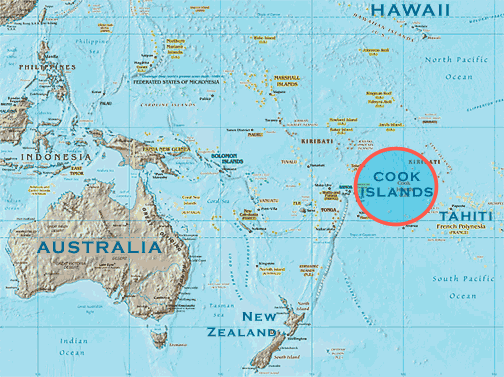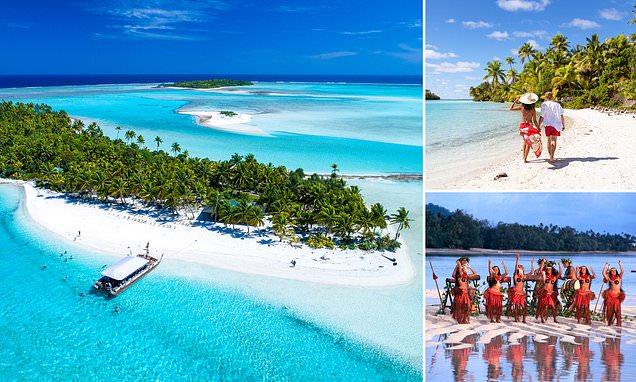'The Last Safe-Place On Earth'? Will This Plague-Free Polynesian Paradise Plunge Into Recession Tyler Durden Wed, 05/27/2020 - 04:15
The Cook Islands, a tourism-dependent economy in the South Pacific, has seen a plunge in international visitors because it chose to protect its people over money, reported Bloomberg.
The tiny island nation (consisting of 15 islands scattered over a vast area), with strong political connections to New Zealand, canceled all cruise ships and banned international flights early on in the COVID-19 outbreak.
"People, not money," Prime Minister Henry Puna said in early May, which came at a grave economic cost of collapsing its $300 million tourism-dependent economy.
Puna's plan to isolate the islands has worked so far, as there are no confirmed virus cases or deaths. As a result of the policy, the islands are likely the last safest-place on Earth, where one does not have to worry about COVID-19 carriers.
Diving into the tourism data, ANZ Bank expects the country won't see any international travelers through June, which has caused its GDP to collapse by 60%. Since tourism accounts for 66% of the economy, a return to normal could take time, said Kishti Sen, an economist at the bank. He said, "2020 will be a very difficult year for the Cook Islands given a shutdown of global tourism due to Covid-19."
Before the pandemic, Cook Islands saw exceptional growth in its tourism industry, up nearly 37% in new international arrivals to 171,550 in 2019 from a half-decade ago. Most of the increase was powered by online book agents, such as Airbnb.
By late February, government officials pulled the plug on the economy by enforcing travel bans after virus infections were seen in New Zealand. Officials knew if an outbreak was seen on its shores, its 22 doctors, 110 nurses, and two ventilators would quickly become overwhelmed.
The Cook Islands are a country in the South Pacific, politically linked to New Zealand.
— 𝓡𝓐𝓕𝓐 💫 (@RafaWildNature) April 20, 2020
The Cook Islands 🇨🇰
🎥 By benjamin_bryant pic.twitter.com/b7yrPqCEkH
Mark Brown, the country's minister of finance, said several companies on the island saw cash flow go to zero. A rescue package was quickly erected, worth $61 million, equivalent to about 11% of GDP, provided $248 transfer payment for pensioners and other vulnerable groups, and three months of free electricity for all residents.
Brown said the purpose of the transfer payments is to keep households fed. Businesses were able to receive grants for short-term relief.
Cook Islands Chamber of Commerce said that an April survey showed businesses expected revenues to plunge by 90% on average.
Annie Fisher, a local Jewelry shop owner, told Bloomberg that sales crashed -- she's only open one day a week for four hours to make repairs for customers. She has come to terms with the economic devastation as she knows decisions by the government have insulated citizens from the pandemic.
"With no vaccine, any relaxing of the borders would cause paranoia," Fisher said, adding that, "visitors can easily bring us the virus, they wouldn't even know they're carrying it. Things will never be the same."
Brown said with barely any revenue flowing into the treasury, creating a national budget for the 2020-21 fiscal year will be challenging. ANZ estimates the country needs at least $161 million to cover the budget and transfer payments.
And while the tiny island nation has been hit with several cyclones, which residents usually rebuild and reset in a matter of weeks, the pandemic has acted like a financial nuclear bomb that will take the country several years to recover. But the silver lining is that if wave two of the virus breaks out, Cook Islands will likely be the best place to ride out the pandemic.
https://ift.tt/3gqnevv
from ZeroHedge News https://ift.tt/3gqnevv
via IFTTT






0 comments
Post a Comment